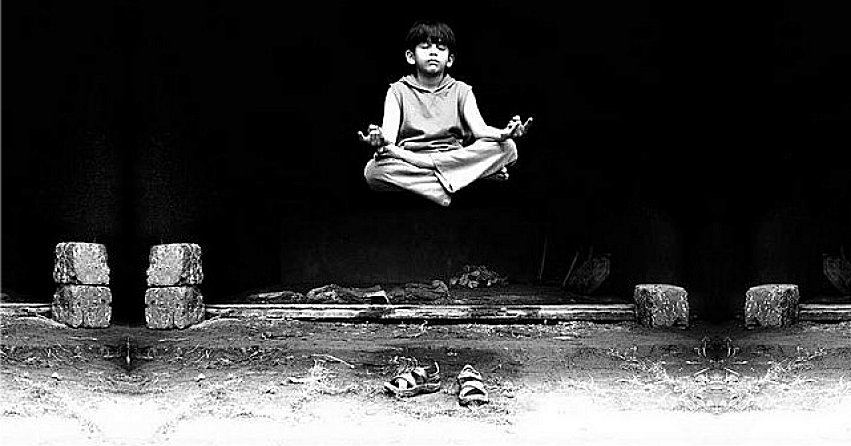What Happens To People Who Meditate For The First Time
by Christina Sarich,
There have been numerous studies detailing what happens to the brain in long-term meditators, but what exactly happens to people who meditate for the first time?
Donate to In5D
With over 6,000+ free articles and 1,200+ free videos, any donation would be greatly appreciated!
Much love for your kind donation,
Gregg
Sara Lazar, a Harvard researcher, has gained quite some notoriety detailing how the brain actually grows grey matter when people meditate. Other studies have shown that meditation improves IQ, and lessens depression. In addition to these benefits, meditation also:
- Reduces alcohol and substance consumption, reduces blood pressure (Chiesa, 2009),
- Decreases anxiety, depressive symptoms, and relapses (Coelho, Canter, & Ernst, 2007; Kim et al., 2009)
- Helps patients suffering from various types of chronic pain (Chiesa & Serretti, in press)
- Lowers the incidence of stress (Chiesa & Serretti, 2009)
- Aids cancer patients (Ledesma & Kumano, 2009)
Most people think they have to meditate for years before they start seeing any of these improvements, but a study conducted by Chiesa, Calati, and Serretti shows that after just eight short weeks of meditation, people start to experience improved cognitive functioning.
Still not fast enough for you?
Meditation for the First Time
Here’s what happens to the brain after someone completes just one meditation session who has never meditated before:
- People start to become less ‘me’ centered as the brain balances the Ventromedial prefrontal cortex (vmPFC), which allows us to ruminate our worry, and the Dorsomedial prefrontal cortex (dmPFC), which allows us to empathize with others and feel more connected to those who we usually view as dissimilar to ourselves.
- The fear-center is calmed via the amygdala and the two branches of the nervous system. You know that ‘uh-oh’ feeling you sometimes get? Meditation helps to make sure that you only feel low-level stress when you really need to, such as when you are about to put your hand on a hot stove, or you need to put the brakes on in traffic. Even then, meditation can help take the stress out of stress-full experiences.
- The very first time you try to meditate, the mind calms down. It doesn’t mean you will experience profound inner peace the first time your bum touches a meditation cushion
, but it does mean that you are already setting up new neural pathways that allow positive change. Each time you ‘sit’ again, you enhance them.
- You’ll feel less depressed. Meditation is getting a lot of press lately because of this study by Mahav Goyal published at JAMA. 47 trials conducted with over 3,500 patients proved that meditation was as effective as anti-depressants. (The effect of meditation was moderate, at 0.3. If this sounds low, keep in mind that the effect size for antidepressants is also 0.3.) The difference is, of course, that meditation can’t kill you or cause other unwanted side effects, like psychotic episodes, panic attacks, hostility, etc.
Beginner Meditators
Though it takes a few more sessions, here is what happens when you meditate a little more frequently:
- You’ll feel less physical pain in just four meditation sessions. Brain activity decreases in the areas responsible for relaying sensory information surrounding a feeling of pain. Also, regions of the brain that modulate pain get busier, and volunteers who participated in a study reported that pain was less intense after meditation practice. These results were all reported at an annual Society for Neuroscience meeting in San Diego.
- The ‘me-center’ slowly evaporates. As the connection between bodily sensations and the vmPFC withers, you will no longer assume that a bodily sensation or momentary feeling of fear means something is wrong with you or that you are the problem. You can just let it rise and pass, without hardly giving it a second thought.
- Empathy becomes stronger. The vmPFC part of the ‘me center’ subsides and the dmPFC grows more dominant, which means you can feel others’ pain or sadness, but with the same ability as you’ve learned to handle your own bodily sensations.
Masters of Meditation
Once you’re an old pro at meditation you can look forward to even more benefits, many of which science is still reaching to understand.
- Tibetan monks can sit for hours in meditation as easily as most of us can spend the same amount of time sleeping or surfing the net. These monks recently dried wet sheets with their bodies by utilizing a form of meditation called g Tum-mo. Monks were cloaked in wet, cold sheets (49 f / 9.4 c) and placed in a 40 f (4.5 c) room. In conditions such as these the average person would likely experience uncontrollable shivering and suffer hypothermia. However, through deep concentration, the monks were able to generate body heat, and within minutes the researchers noticed steam rising from those sheets. In about an hour the sheets were completely dry.
- Yogis in India who practice meditation are able to slow their hearts so completely that they are hardly detectable on EKG equipment. In 1935 a French cardiologist, Therese Brosse, took an electrocardiograph to India and studied yogis who said they could stop their heart. According to Brosse’s published report, readings produced by a single EKG lead and pulse recordings indicated that the heart potentials and pulse of one of her subjects decreased almost to zero, where they stayed for several seconds. (Brosse, 1946)
- A master meditator, Munishri Ajitchandrasagarji, is a Jain monk who credits his incredible memory to meditation practice. He can recite 500 items from memory, whether it is a phrase from one of six different languages, a math problem, or the name of a random object. He recently performed this feat in front of an audience of 6,000 to verify his amazing level of skill. It took six hours for the crowd to feed him the list of items, and he recited them back perfectly.
- Dutchman Wim Hof is able to control his immune system with meditation. He has been in the Guinness Book of World Records 20 times for accomplishments like climbing Mt. Everest and Kilimanjaro in nothing but a pair of shorts and shoes, with no water or food, when temperatures easily reach 50 degrees Celsius. He uses a special breathing meditation.
So maybe the first time you learn to control your thoughts by focusing on your breath, or simply observing your thoughts like clouds passing in the sky won’t make you a master meditator capable of these staggering acts, but even with your first twenty minute ‘sit’ you are well on your way to other-worldly abilities.
Click here for more articles by Christina Sarich!
About the Author: Christina Sarich is a musician, yogi, humanitarian and freelance writer who channels many hours of studying Lao Tzu, Paramahansa Yogananda, Rob Brezny, Miles Davis, and Tom Robbins into interesting tidbits to help you Wake up Your Sleepy Little Head, and *See the Big Picture*. Her blog is Yoga for the New World . Her latest book is Pharma Sutra: Healing The Body And Mind Through The Art Of Yoga.
In5D PATREON: https://www.patreon.com/in5d See our In5D articles the day before they’re released, AD FREE, on Patreon for a minimal donation!
Follow In5D on Patreon, Telegram, Twitter, Bitchute, TikTok, Instagram, Facebook, YouTube, Gab, and Truth Social @greggprescott
















